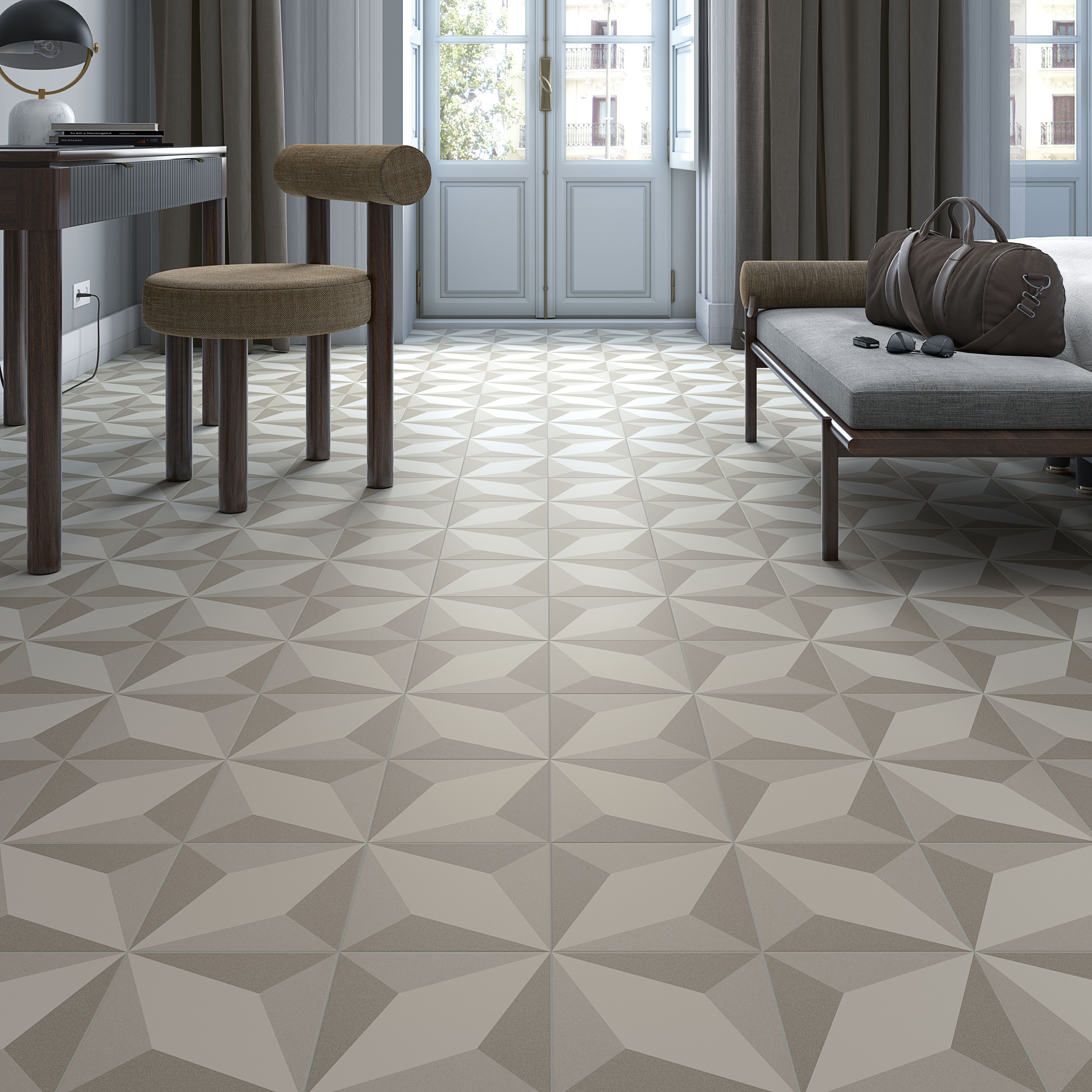| Materials | Tips |
|---|---|
| Tiles | Choose from over 1000 different tile styles at Tile Space. |
| Fibre Cement Board / Tile Underlay | Used when tiling onto timber, particle board or plywood floors designed to protect the finished tile floor from movement that occurs naturally in such floors. |
| Waterproofing Membrane | Required for wet areas. As it is very important for waterproofing to be done correctly, we recommend getting a trades person who is certified for waterproofing. |
| Threaded Nails | For installing underlay |
| Levelling Compound | Applied when the substrate surface is uneven. |
| Primer | Must be used on the area to be tiled before tiling. |
| Tile Adhesive | Many different types available depending on the type of substrate the tiles are to be laid on. If unsure, please check with a trade consultant. |
| Spacers | To keep grout lines even between tiles. We recommend the Raimondi Levelling Spacers which easily make sure spacing is even and that the tiles are level when laid. |
| Grout | Various colours are available and we would advise working with your tile design consultant to pick out the right colour when selecting your tiles. |
| Epoxy Grout | Recommended for swimming pools and high traffic areas where grout fading and maintenance can be issues. Also recommended for shower recesses as it resists mould. |
| Grout Additive | Aids in greater adhesion and is needed when tiling over timber floors and areas where extra resilience, stain resistance and mould resistance is needed. |
| Grout Sealer | To protect the grout colour and for ease of cleaning. |
| Silicone | Creates a flexible grout joint. Must be used around the perimeter of rooms, wall corners, or where the tiles meet other surfaces. Available in a range of colours to match grout colours. |
| Tile Sealant | Seals porous tiles such as un-glazed ceramic tiles, stone, slate, marble terracotta etc. against dirt and liquid to make them easier to maintain. Porcelain tiles do not tend to require sealing as they are far less porous, and some of our tile ranges are factory-sealed. |
| Trim | Usually aluminium, for covering the exposed edges of tiles. |
| Epoxy Cleaner | For cleaning up after epoxy grout application. We highly recommend Epex Wash. |
TOOLS
| Tools | Usage |
|---|---|
| Tape Measure | To measure the area to be tiled to work out the number of tiles and how the tiles will be laid out. |
| Chalk Line | For marking long, straight lines on relatively flat surfaces. |
| Builders Square (Framing Square) | Helps align and position tiles at 90 degree angles. |
| Spirit Level | To ensure the tiles are perfectly level and for creating level markings. |
| Tile Marking Pencil / Chalk | To mark cuts onto the tiles. |
| Tile Cutter | A variety of options are available in store for sale and hire. |
| Tile Saw / Angle Grinder | For shaping curved tiles to fit around obstructions, such as water pipes, wash basins or baths. Available for hire at selected Tile Space stores. |
| Tile Drill / Hole Saw | For drilling holes through tiles to accommodate pipes or fittings. |
| Tile Nippers | Aids tile cutting. Used for making very narrow cuts, removing waste from a curved cut or for cutting individual mosaic tiles. |
| Glass Cutter | Used for scoring smooth surface glazes, allowing the tile to be snapped. |
| Nail Gun | For nailing down underlay. |
| Notched Trowel | Used to apply the adhesive. Normally an 8mm or 10mm trowel is required for floor tiling and 4mm or 6mm for wall tiling. |
| Grout Float / Squeegee | Rubber edged tool for applying and spreading grout. |
| Caulking Gun (Silicone Gun) | Used to apply silicone. |
| Sponges | To clean up after grout application and wipe off excess grout. |
| Rags | For wiping up drips. |
| Floor Protection | To protect floors while wall tiling or when moving tiling materials around the area. We recommend Ram Board. |
































































